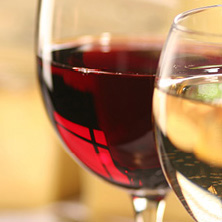Can I have my daily coffee?

Along with planning healthy and wholesome meals for pregnancy, many women wonder what is – and what isn't – safe to drink while they are expecting, particularly where alcohol and caffeine are concerned.
At a glance
- Caffeine doesn't have to be ruled out entirely during pregnancy
- Mums-to-be can have up to 200mg of caffeine a day
- Alcohol should be avoided altogether
Caffeine
For most of us, that kick-start cup of coffee in the morning is what motivates us to get out of bed in the first place, and the good news is that it doesn't have to be ruled out entirely for pregnant mums. Although high caffeine levels can cause an increased risk of miscarriage in pregnancy and low birth weight in babies, the current advice is that mums-to-be can have up to 200mg of caffeine a day – so a couple of cups of coffee will be fine.
Remember that tea contains caffeine as well, so don't forget to count your cuppas too! Decaffeinated tea and coffee could be your best friend if you really cannot get through the day without sticking the kettle on regularly.
Alcohol
Most women give up alcohol completely in pregnancy because this is the safest way. Guidelines from the Royal College of Obstetricians and Gynaecologists say no alcohol for the first three months of pregnancy as this is a vital time for growth and development. Additionally, the Chief Medical Officer has advised that the safest approach is not to drink alcohol at all in pregnancy. Remember: what you drink your baby drinks. Alcohol crosses the placenta, into your baby’s bloodstream.
If you do decide to drink, it is recommended that you do not drink alcohol in the first three months and limit yourself to no more than 1 or 2 units, not more than once or twice a week. Drinking more than this is linked to:
- Early miscarriage
- Premature birth
- Restricted growth and brain development in the womb
- Foetal alcohol syndrome